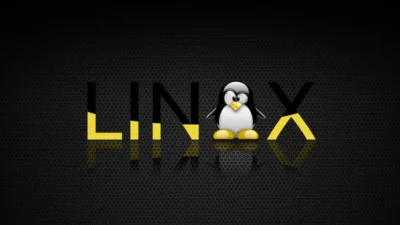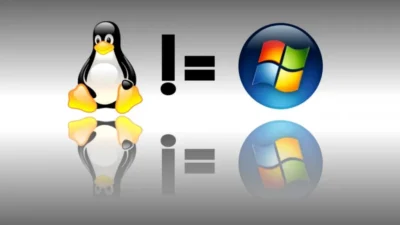Introduction: Why Linux Generates So Much Buzz
When it comes to operating systems, Linux has long been a favorite among developers, system administrators, and tech enthusiasts. It’s widely considered a powerful and flexible alternative to Windows and macOS, particularly for users looking for open-source solutions, customization, and security. However, as with any technology, Linux comes with both advantages and disadvantages that have sparked debates.
Some users swear by Linux, claiming it’s the best choice for any task, while others believe Linux overrated and unnecessarily complicated. So, is Linux really as great as people make it out to be, or is it just a buzzword that doesn’t live up to the hype?
In this blog post, we’ll dive deep into the pros and cons of Linux, explore its reputation in the tech world, and help you decide if Linux is truly worth your time and effort.
What is Linux? A Brief Overview
Before we dive into the debate, let’s quickly define what Linux is. At its core, Linux is an open-source operating system based on the Unix family of systems. Created by Linus Torvalds in 1991, Linux is free to use, modify, and distribute. It comes in various distributions or distros such as Ubuntu, Debian, Fedora, and Arch Linux, each tailored to different user needs.
The Popularity of Linux: Why People Love It
To truly understand whether Linux overrated, let’s first examine why it’s so popular in certain circles.
- Open-Source Nature and Flexibility
One of the most appealing features of Linux is its open-source nature. Unlike proprietary operating systems like Windows, Linux is free to use, and its source code is accessible to anyone. This means users can modify the OS, fix bugs, and create their own customized versions of Linux, making it highly flexible.
- Security and Stability
Linux is known for its stability and security. It’s less prone to viruses and malware compared to Windows, thanks to its permission-based system. Linux users have complete control over their system, making it easier to lock down security and prevent unauthorized access. This makes Linux a popular choice for servers and critical infrastructure.Which clearly doesn’t make Linux Overrated but popular choice.
- Customization and Control
Linux offers an extraordinary level of customization. Users can tweak almost every aspect of the OS, from the graphical user interface (GUI) to the underlying system settings. This makes Linux an ideal choice for developers and power users who want to tailor their experience to their specific needs.
- Great for Developers and System Administrators
Linux is widely used by developers and system administrators due to its powerful command-line tools, package management system, and support for programming languages like Python, C++, and Java. It provides a rich environment for development and is often the go-to choice for servers and cloud platforms.
The Case Against Linux: Is It Really All It’s Cracked Up to Be?
Despite its many advantages, Linux isn’t without its drawbacks. For all its positive attributes, there are a few areas where Linux may not be the best fit for everyone. Here’s a look at why some people might think Linux overrated.
- Limited Software Support
One of the most common criticisms of Linux overrated is the lack of mainstream software. While Linux supports many open-source applications, it often falls short when it comes to popular software used by the general public, such as Adobe Creative Suite, Microsoft Office, and some video games. While alternatives like LibreOffice and GIMP exist, they often fail to meet the same level of performance and polish as their commercial counterparts.
- Compatibility Issues with Hardware
Another issue that some Linux users face is hardware compatibility. Although many popular hardware manufacturers support Linux, certain devices, especially specialized ones like printers, scanners, and gaming peripherals, may not have drivers or proper support for Linux. This can make it challenging for casual users who expect plug-and-play simplicity. Clearly in term of ease of use Linux overrated
- Steep Learning Curve for New Users
Linux has a steeper learning curve compared to Windows and macOS, particularly for those who aren’t familiar with command-line tools. The system’s text-based interfaces and terminal commands can be intimidating for newcomers, which might discourage casual users from adopting it. While Linux distros like Ubuntu have made strides in improving the user interface, it still requires a certain level of technical know-how to get the most out of it.
- Lack of Vendor Support
Unlike Windows or macOS, Linux lacks the same level of official vendor support. While Linux has a large and active community that offers help through forums and user groups, it may not be the ideal choice for those who need official technical support for their operating system.
- Gaming and Entertainment
For many users, the ability to play games or use entertainment software is a critical aspect of their operating system. While Steam has made progress in bringing gaming to Linux, the overall gaming experience on Linux still lags behind Windows. Some popular games and entertainment platforms are simply not supported on Linux, which can be a dealbreaker for gamers.
The Verdict: Is Linux Overrated?
After exploring the pros and cons of Linux, it’s clear that whether Linux is overrated depends largely on the context in which it’s used. For developers, system administrators, and enterprise environments, Linux offers unmatched flexibility, stability, and control. It’s an excellent choice for servers, cloud computing, and open-source projects.
However, for casual users or those who rely on specific software and hardware, Linux may fall short. Its steep learning curve, limited software support, and lack of compatibility with certain hardware can make it less appealing for those who are accustomed to the simplicity and familiarity of Windows or macOS.
Ultimately, Linux is not overrated for its target audience; it’s just not the right fit for everyone. It excels in the areas where flexibility, security, and open-source are prioritized, but it may not be the best choice for casual users or those looking for a seamless, out-of-the-box experience.
Is Linux the Right Choice for You?
If you’re considering switching to Linux, here are a few questions to ask yourself:
- Are you comfortable with a command-line interface or willing to learn how to use it?
- Do you prioritize security and customization over ease of use?
- Are you willing to explore alternative software to replace proprietary programs?
If the answer is yes, then Linux is likely a perfect fit for you. However, if you rely on software like Microsoft Office or have specific hardware needs, you might find Linux challenging.
Conclusion: Linux—A Double-Edged Sword
In conclusion, Linux is a powerful operating system with a unique set of strengths and weaknesses. While it’s not overrated in the world of developers, system administrators, and tech professionals, it may not be the perfect solution for everyone. Linux’s flexibility, security, and open-source advantages make it an excellent choice for those who need control and customization. However, for those who rely on mainstream software or need an OS that works out of the box, Linux might not be the ideal choice.
As with any technology, it’s important to choose the right tool for the job. Linux has earned its place as one of the most reliable, secure, and customizable operating systems, but whether it’s right for you depends on your specific needs and technical capabilities.
Did you enjoy this post? Let us know your thoughts in the comments below! If you’re looking for professional IT solutions, server management, or custom software development, reach out to Ahmad Tech Solutions. We specialize in providing top-tier IT services for businesses across the USA, UK, UAE, KSA, and Europe.



